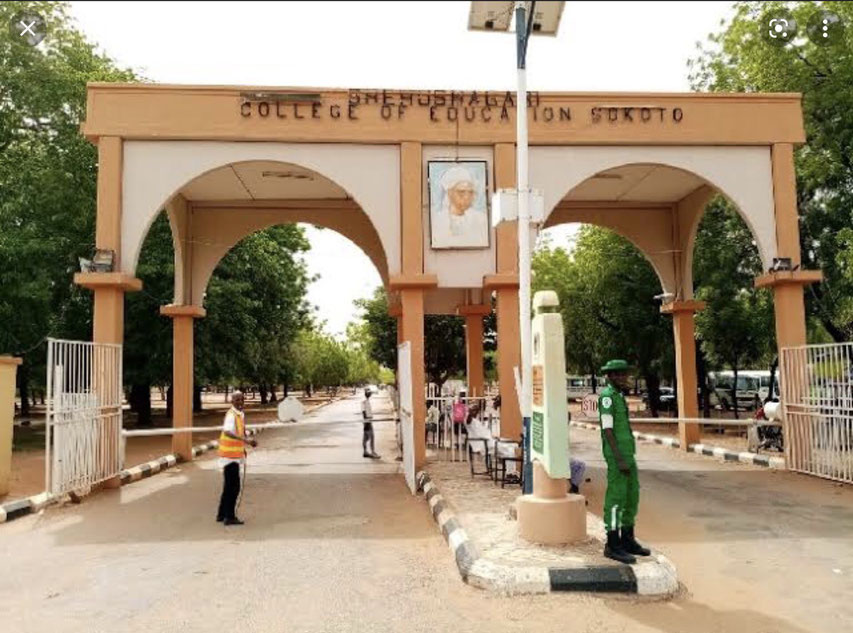
by Masara Kim, Jos
On 12 May, Deborah Yakubu, a 200-level student at Shehu Shagari College in Sokoto, was lynched by a mob after being accused of blasphemy.
The fatal attack was apparently prompted by verbal arguments on 11 May after Deborah Yakubu credited Jesus with her exceptional performance in her last semester examinations during a group chat, according to a colleague of hers named Rakiya, who spoke to Vanguard newspaper. According to Rakiya, Yakubu’s comment sparked uproar from her Muslim colleagues who demanded an instant retraction.
But the apparently unintimidated young woman, a member of the Christian minority Zuru tribe in Niger State, daringly said nothing would happen to her, as the arguments ensued.
In a widely circulated voice note on social media, Yakubu said “Holy Ghost Fire! Nothing will happen to me. Is it by force that you guys will be sending religious materials in this group? The group was created to share information on [class] tests, assignments, past questions and not these nonsense religious posts.”
The comment further sparked outrage in the group, a security source told us, but the college authorities did nothing.
“Her course-mates started holding meetings from the evening of the comment and even came looking for her in the hostel but some of her mates shielded her,” said the source. “The school authorities knew about it but did not notify securities for appropriate action.”
Police fail to intervene
On the morning of 12 May, Deborah was dragged out of class during an examination, said the security source. “Some of her mates shielded her and smuggled her to the security office in the college but police who were deployed early enough did not go to the scene to rescue her. Instead, they fired teargas from outside,” the source added.
The Sokoto State governor, Aminu Tambuwal, called for calm following the killing, but did not condemn the mob’s actions.
President Muhammadu Buhari in a press statement through his spokesman Garba Shehu only condemned the perpetrators for taking the law into their hands.
He maintained, “Muslims all over the world demand respect for the Holy Prophets, including Isah (Alaihissalaam, Jesus Christ) and Muhammad (SAW) but where transgressions occur, as alleged to be the case in this instance, the law does not allow anyone to take matters into their hands.”
Criticism of blasphemy laws
Nigeria has been widely criticized for maintaining blasphemy laws which are largely regarded as an abuse of human rights.
Only last April, the Kano State High Court sentenced a self-proclaimed atheist, Mubarak Bala, to 24 years’ imprisonment for blasphemy.
The previous August, a shari’a court in Kano convicted two others on blasphemy charges. Omar Farouq, 13, was accused of making blasphemous comments during an argument, while Yahaya Aminu Sharif was accused of having shared a blasphemous song on WhatsApp.
Eventually, an appeals court in Kano acquitted Farouq as he was a minor while Sharif, who had been sentenced to death, was referred back to the shari’a court for retrial. He remains in prison.
Imam justifies killing
Several Islamic scholars have justified the latest killing, condemning the arrest of two ring leaders of the attack.
The Chief Imam of the National Mosque in Nigeria’s capital Abuja, Prof. Ibrahim Maqari, wrote in a tweet that Muslims have the right to address grievances that relate to their religion.
“It should be known to everyone that we the Muslims have some red lines which MUST NOT be crossed,” Maqari wote on 13 May. “The dignity of the Prophet (PBUH) is at the forefront of the red lines,” he wrote.
“If our grievances are not properly addressed, then we should not be criticized for addressing them ourselves,” Maqari added.
Mob lynchings
Many previous mob actions over blasphemy allegations have been ignored by the Nigerian authorities. At least nine such instances have been recorded in the country in recent years, with none of the perpetrators facing justice.
In 1995, a group of Muslims in Kano broke into a police station and dragged a Christian resident, Gideon Akaluka, out of his cell and beheaded him for blasphemy.
On 14 July 1999, in the village of Randali in Kebbi State, a Muslim mob beheaded a local resident, Abdullahi Umaru, on allegations of blasphemy.
In 2006, a class teacher named Florence Chuckwu was killed alongside other 20 Christians in Bauchi town after she told a student to stop reading the Qur’an in class while she was teaching the English language.
On 21 March 2007, Muslim youths murdered a Christian teacher and mother of two, Christianah Oluwatoyin Oluwasesin, for allegedly touching and defiling the Qur’an.
On 28 September 2007, a Muslim mob in the city of Kano killed nine Christians, burned several churches, and destroyed the homes of several Christians after some Christian students allegedly drew a picture of Mohammed.
On 9 August 2008, a Muslim mob in Kano State beat to death a 50-year-old Muslim man who allegedly blasphemed Mohammed.
On 4 February 2008, another Muslim mob razed a police station in Bauchi state for allegedly shielding a Christian woman whom the mob accused of desecrating the Qur’an.
In 2016, 74-year-old Bridget Agbahime was beheaded in Kano for refusing to allow a Muslim to do ablution [pre-prayer washing of arms and feet] in front of her rented shop.
In 2016, Evangelist Eunice Olawale of Redeemed Christian Church of God was lynched by a group of Muslims in Abuja for preaching the Gospel.
Write a comment